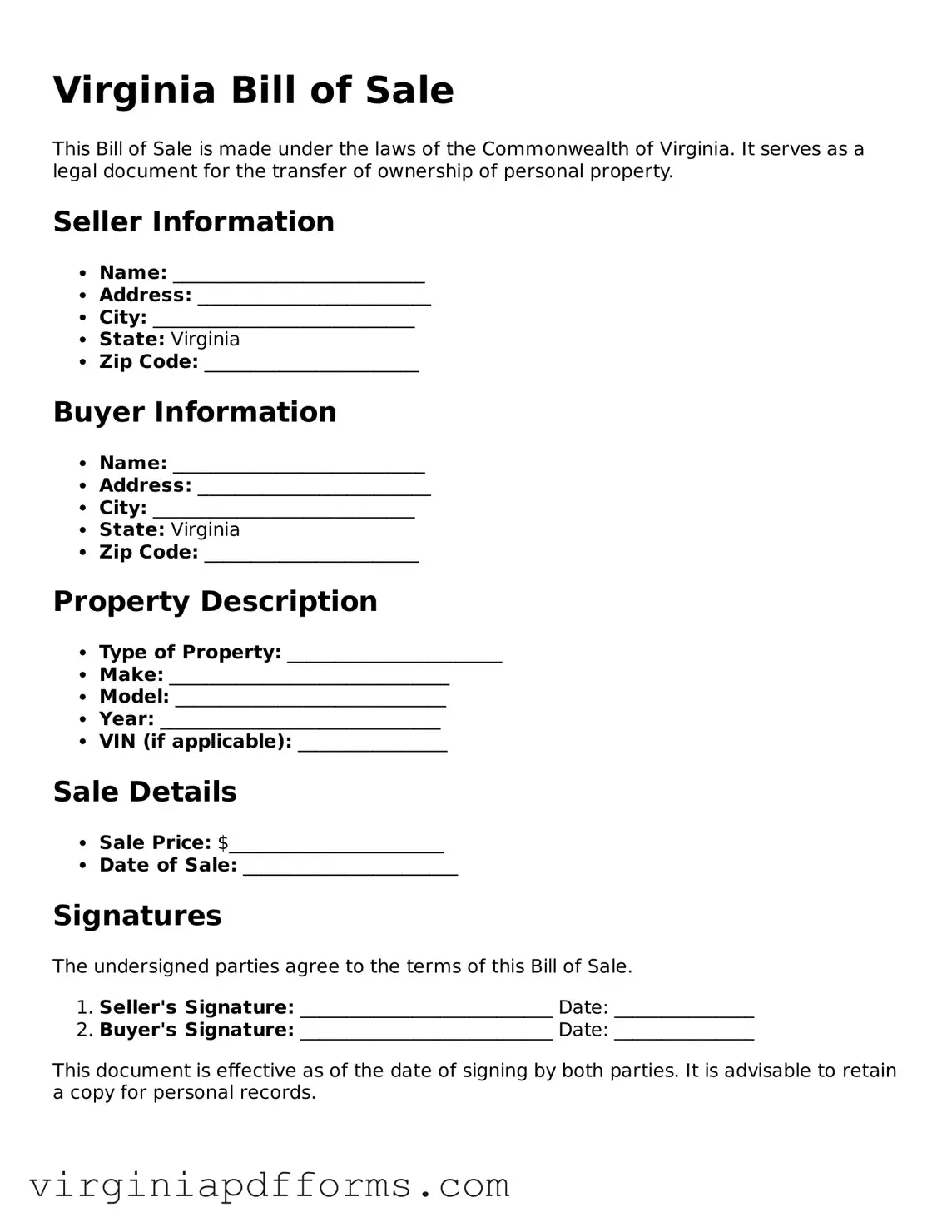Attorney-Approved Virginia Bill of Sale Document
The Virginia Bill of Sale form is a legal document used to transfer ownership of personal property from one party to another. This form provides essential details about the transaction, ensuring both the buyer and seller have a clear record of the exchange. Understanding its components is vital for anyone involved in buying or selling goods in Virginia.
Access My Document Now

Attorney-Approved Virginia Bill of Sale Document
Access My Document Now

Access My Document Now
or
Free Bill of Sale File
Need this form wrapped up fast?
Finish Bill of Sale online — edit, save, download without effort.